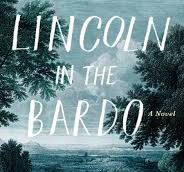Dadlit flourished as a genre in the dying years of the last century. The formula was simple: take one small family unit a hopeless but lovable pair of males (usually father and preadolescent son) plus a beautiful and adored mother figure and contrive the sudden removal of the female by divorce, mental illness, or, ideally, tragic early death. Then examine the consequences as the blokes, soon submerged beneath the domestic detritus of dirty washing and takeaway containers, muddle through the trauma, bonding as they go. They're not entirely alone, of course. The mothersubstitute, a stoicbutvulnerable guardianangel figure or sibling, sisterinlaw, or wife's best friend, is never far away, dispensing tough love, cigarettes, and, after a decent period has elapsed, a female for dad to take out for an Indian meal.
This is a key midway scene because the son also has a potential investment in this new female and has helped choose his dad's outfit for the evening ("Crikey, dad, not those old trainers! Wear those nice brogues you bought for mum's funeral."). The meal, of course, is a disaster. "It's too soon", the father weepingly admits to his date over the Vindaloo. Dad blames guardian angel, the relationship between them fractures and, as a result, father and son fall out. The second half of the novel comprises dad and son, now isolated, doing some proper growing up. The climax usually sees the dad successfully completing a relatively straightforward domestic task (operating the washing machine for the first time, for example) while the son offers a cheesy thumbs up and the guardian angel, caught in a ray of sun, looks on fondly through the newly cleaned kitchen window.
With his fourth novel, Always the Sun (please feel free to read it out loud), Neil Cross has belatedly added to the Dadlit canon. So, meet dad, Sam, "a messy head of cornblond hair. Broad face on beefy shoulders. Pale blue eyes and a knobby cudgel of a nose", and son Jamie, "skinny and feline, the subtle echo of his mother." They arrive at their new house in a hire van having sold the family home in Hackney and moved to the nameless town where Sam grew up. Here they're greeted by Sam's sister, Mel, divorced, "caustic and languid." Sam is a psychiatric nurse "by training", which you imagine will equip him well to help his son deal with the death of his mother (incidentally, in Dadlit it's best if this death occurs offstage; ideally the illness should be brief and not too messy).
Neil Cross makes the first inadvisable plot choice by culling her with "fatal familial insomnia"; a rare condition, he explains, caused by the action of prions that also caused scrapie in sheep and BSE in cattle. Yes, poor old Justine died of Mad Cow Disease and no detail is spared of her gothic death.
Anyway, poor old Sam, who's so hopeless he can't even stuff a duvet, and Jamie settle in with the help of Mel who's happy to adopt the surrogate mother role. For a few pages everything moves along amiably enough. Jamie enrols at Sam's old school, Sam meets a few old school friends and gets a job in the local psychiatric hospital. But this is all too dull for Cross who breaks from formula again with a bizarre diversion into Richard Curtisland, populated, as it is, by lovable white English eccentrics, who swear profusely and ride round on motorbikes.
So it is that, late in July, "Unka Frank and Yetti Moocow" chug up on an antiquated motorcycle. Unka Frank is Mel's exhusband, Yetti, his girlfriend. Frank helped Sam through the initial trauma of Justine's death by holding his hand in a manly way. He's also adored by Jamie, even though to take the lad's mind off his beloved mother's ghastly demise he chose to take him to the cinema to see 'The Mummy Returns'. For the sake of the author's future, you have to hope the irony is intended. But there's more. Unka Frank has served time for a lucrative dognapping scam he devised with Yetti. They made £200,000 in eighteen months. Yes, £200,000! and all they did was take the mutts to the park for an hour while they waited for the owners to cough up the ransom.
But Frank's visit is a diversion from the main theme of the book, which finally reveals itself when Jamie starts truanting, and then one day arrives home from school with a small bruise on his ribs. Dadlit transmutes into Death Wish as Sam attempts to take revenge for what he assumes to be a case of bullying. Special needs Liam Hooper's the obvious culprit his dad, after all, is the local slaughterman. But it all goes horribly wrong, the ante is upped, and the narrative motors on towards its dark denouement.
Plot absurdities aside, Cross has been done no favours by laissezfaire editing. "Scudding clouds" you could just about forgive once in a contemporary novel, but not twice. And there are far too many instances of imprecision clouding the meaning: "bilious confetti spread across his field of vision"; "Sam lit a contemptuous cigarette"; "the bus stop was just across the road. Its convenience had prevented Sam from getting round to buying a car." There is a novel in here somewhere, the theme of bereavement clouding judgement is a promising one, but a hell of a lot more effort is needed to tease it out.
If, as a historical curiosity, Dadlit appeals to you, I suggest you use your Christmas book vouchers on an early Nick Hornby novel. Should you want to try Neil Cross, his previous effort, Holloway Falls, is rumoured to be a better bet. The Guardian described it as "Vertigo on ketamine". Whatever that means.

